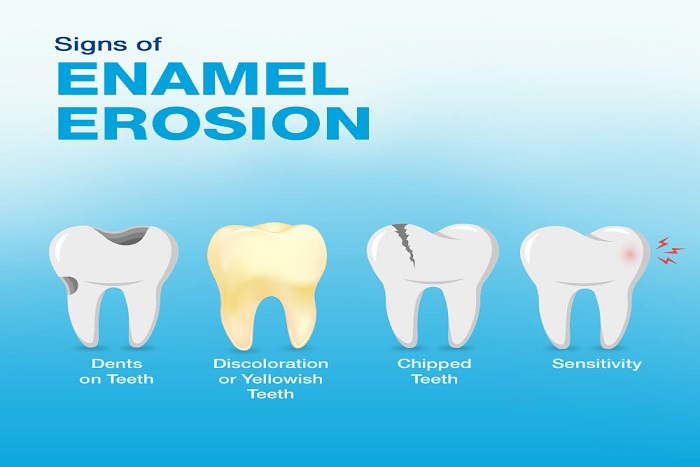Harpenden Dentist - Wayside Dental Practice
29, May 2019
Did you know that 30% of people have their tooth enamel dissolved or worn away? This is called dental erosion and is the loss of hard tissue on the tooth caused by acids which we drink (soft drinks, carbonated/fizzy sodas etc.) and eat (fruit and pickles). It can also be caused by acids from vomiting or reflux. When the hard tissue is worn off from the tooth, it can create severe pain and sensitivity.
Symptoms of Dental Erosion
Dental erosion wears away the enamel and biting edges, exposing the dentine inside the tooth. The symptoms of dental erosion are:
- Discolouration – teeth start becoming yellowish due to the wearing of the hard surface
- Sensitivity – feeling pain while consuming hot or cold foods and drinks
- Teeth Shape – teeth can get shorter
- Teeth Thickness – the teeth can thin and start looking transparent from the front.
If you see or feel any of these symptoms or have any concerns we’d advise asking one of our expert dentists or nurses for their opinion.
Prevention is Better Than Cure
What can I do to prevent dental erosion?
- Eat a healthy diet.
- Avoid frequent intake of acidic drinks and foods. Try to limit them to mealtimes only.
- Avoid sweets.
- Saliva is a natural balm against erosion. Being well hydrated will help produce more saliva which will neutralise the acid in your diet.
- While eating any type of acidic foods, chew faster so that it doesn’t stay in contact with the tooth for long.
- While having soft, fizzy or sweet drinks use a straw as it will ensure less contact with the tooth.
- Use sugar-free chewing gum after meals as it helps to balance saliva flow in the mouth.
- It’s always advisable to eat whole fruits rather than drink fruit juice.
- Avoid chewing Vitamin C tablets, take them whole if possible.
- Use fluoridated toothpaste with an electric toothbrush.
- Don’t rinse your teeth after brushing.
- Consume dairy products like milk andyoghurt on a regular basis as they’re rich in calcium and phosphate, and eating them after a meal will neutralize the acid.
- Do not brush your teeth immediately after a meal, wait for at least 30 to 45 minutes after eating.
Dental Erosion Treatment
Dental erosion doesn’t always need invasive treatment. Regular check-ups and advice can help stop the problem getting any worse and the erosion going any further. Your dentist or hygienist might recommend you use a fluoride mouthwash or have a fluoride varnish applied. If the erosion is more advanced, usually bonding a filling onto to the tooth can repair it although in more severe cases a veneer might be required.
If you’re worried about tooth erosion contact Wayside Dental Practice today.
Proper diet and oral care will keep the dental erosion at bay.
